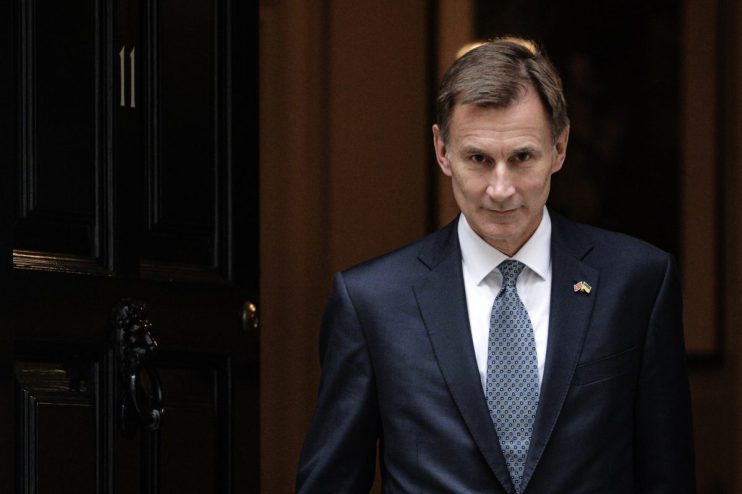Hunt must ignore illusory fiscal windfall in Autumn statement, think tank urges

Chancellor Jeremy Hunt should beware the “illusion” of a fiscal windfall caused by higher inflation ahead of the Autumn statement, according to a leading think tank.
Although expectations for the UK’s economic outlook have deteriorated over the past few months, the fiscal outlook is likely to be healthier compared to the Office for Budgetary Responsibility’s (OBR) March forecasts.
This reflects stickier-than-expected inflation and strong wage growth, which bolsters the government’s tax receipts as more people are dragged into higher tax brackets.
James Smith, research director at the Resolution Foundation, said: “As well as causing a huge cost-of-living crisis, Britain’s bout of high inflation is also flattering the public finances, with higher pay growth feeding through into higher tax revenues.”
In the six months of this fiscal year, tax receipts have come in £15bn higher than forecast by the OBR back in March. By 2027-28, annual receipts will be around £40bn higher than forecast.
These higher tax receipts will only be partially offset by extra spending on debt interest costs, which are expected to rise by around £16bn in 2027-28 compared to the OBR’s March forecast.
This will mean borrowing will be lower than expected, and the Chancellor will have around £13bn in headroom to meet his target of having debt falling as a share of GDP by the final year of the forecasts.
With borrowing repeatedly coming in lower than anticipated, several Conservative MPs have called for tax cuts in the Autumn statement an attempt to stimulate the economy.
But the Resolution Foundation argued that this was a “fiscal illusion” because it failed to take into account the pressure that higher inflation would put pressure on public services.
Smith said it was a mistake to think that higher inflation will “increase tax revenues without also pushing up spending on public services”.
For example, the government’s current plans have not been changed to reflect recently agreed public sector pay settlements, which would cost a further £13bn.
Failing to increase spending plans over the coming years would amount to deep spending cuts in real terms too.
Public sector spending plans were set before inflation took off, meaning per capita spending on unprotected departments – such as the Home Office, Transport, Justice and Levelling Up – is set to fall in by 16 per cent in real terms between 2022-23 and 2027-28.
This would mean cuts being implemented at a similar pace to those overseen by George Osborne, when per capita spending fell by 16 per cent between 2010-11 and 2013-14.
“While the Chancellor may choose to allow these fiscal illusions to run until after the next election, that does not remove the fiscal reality of the pressures involved,” the think tank warned.